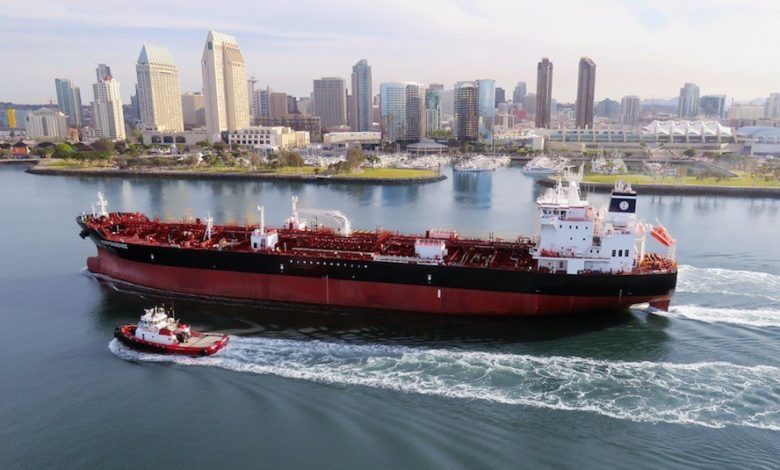Jones Act waiver may be required to ship petroleum products after Colonial Pipeline cyberattack

The US Department of Transportation (USDOT) said in a release yesterday that the government is considering a “temporary and targeted waiver of the Jones Act” in response to the Colonial Pipeline hack.
The USDOT’s Maritime Administration (MARAD) is conducting a survey of Jones Act-qualified vessels to learn what’s available in the Jones Act fleet to carry petroleum products both within the Gulf and from the Gulf up the Eastern Seaboard. If it is determined that there is not sufficient capacity on Jones Act-qualified vessels to carry the required amount of product, a waiver request may be submitted to the Department of Homeland Security for approval.
The Jones Act requires that all goods transported by water between US ports be carried on US-flag ships, constructed in the US, owned by US citizens, and crewed by US citizens and permanent residents.
In a posting earlier this week, Vortexa, a provider of market intelligence in the energy sector, said of the Jones Act, “There are only about 57 oil tankers that meet this standard, called “coastwise-qualified,” and many of them are off the market, leased on long-term time charter. So, the supply of tankers that can transport oil between US ports is very limited.”
Vortexa also said: “A waiver would enable foreign flagged ships to move fuel cargoes between US ports – not only newly scheduled loadings, but also foreign tankers originally destined for international destinations that could then be re-routed to US ports. We count about ten tankers that have recently left the US Gulf Coast for southern destinations, that could in theory be rerouted. In general, the US oil industry tends to support these waiver requests during oil market disruptions, while the US shipping industry has usually opposed them.”
In other steps to ease the movement of petroleum products as required, the federal government has issued a temporary hours-of-service exemption for truck drivers transporting gasoline, diesel, jet fuel and other refined petroleum products to 18 affected states, and the Federal Railroad Administration is canvassing rail operators to determine their capacity to help transport fuel.
